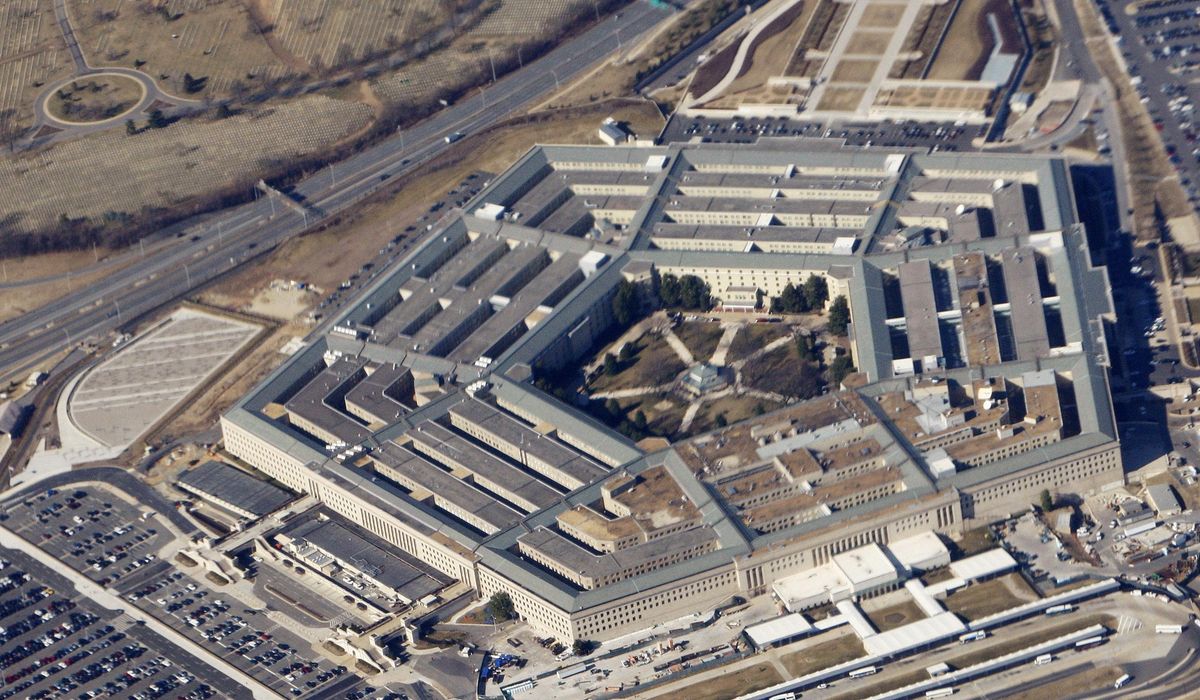

The Pentagon has revised rules that will make it easier for political appointees and congressional staffers to gain access to the Defense Department’s most secret programs, raising concerns among security officials.
Deputy Defense Secretary Kathleen Hicks issued a memorandum to senior Pentagon officials on Sept. 20 stating that filling out a counterintelligence questionnaire is no longer required for gaining access to special access programs, known as SAPs, which are the most secret activities and programs within the department.
The eased rules specifically allow access to Senate-confirmed political appointees, members of the House and Senate, the professional staff of the congressional defense and intelligence oversight committees and senior White House officials without filling out the prescreening questionnaire as required for all other officials in a Pentagon rule book called Special Access Security Manual: Personnel Security.
Also exempted from the prescreening questionnaire are national security advisers to House and Senate leaders, such as House Speaker Nancy Pelosi and House Minority Leader Kevin McCarthy, and Senate Majority Leader Charles E. Schumer and Minority Leader Mitch McConnell.
A Pentagon official said the effects of the rule change on the protection of highly sensitive programs could be “devastating.”
Security officials “see this as a front-door or quasi-sanctioning method that will invite leaks, as previous measures affording proper protection of highly protected information are eliminated,” the official said.
Special access programs are classified above the top-secret level and are reserved to protect the most sensitive information.
Obama administration Secretary of State Hillary Clinton received criticism for putting information from a special access program on her private email server, according to government documents related to a subsequent investigation. The sensitive information involved criteria to authorize drone strikes on terrorists.
I. Charles McCullough III, serving as inspector general of the intelligence committee, disclosed the compromise of this high-level information in January 2016.
Another program involved the enemy-targeting radar frequency for surface-to-air missile systems in Iraq. The information required secrecy to protect the lives of U.S. pilots.
The Pentagon defended the decision to ease the rules.
The memorandum “formally articulates a long-standing Department of Defense practice of not requiring Special Access Program Pre-Screening Questionnaires from certain senior U.S. government officials,” Pentagon spokesman Eric Pahon told The Washington Times. “These include senior-level appointees in the White House, members of Congress and Senate-confirmed presidential appointees.”
Mr. Pahon said the new rules do not expand existing practices but formalize “best practices which reduce unnecessary redundancies and inefficiencies.”
“These officials are already subject to rigorous background investigations by both the executive branch and Congress; therefore, the requirement to complete a SAP prescreening questionnaire is considered redundant and unnecessary,” he said.
The rules will facilitate more efficient collaboration and streamlined access and security practices, he said.
The 2015 handbook says every official who is granted access to a special access program must first explain whether they have “foreign affections,” or dual citizenship, “foreign associations,” such as financial interests abroad, or unofficial foreign travel after a previous security review.
The questionnaire also asks about financial problems such as overdue bills, tax liens or garnished wages.
Personal conduct, such as the suspension or revocation of security clearances, also is part of the questionnaire.
All questions are standard tools used to identify potential foreign spies or people who are vulnerable to recruitment by foreign intelligence services. Any “yes” answer places the candidate in a position for further investigation before they are allowed access to the secret program.
Security experts say the less-demanding rules will make it easier for an already leaky government establishment to disclose classified information.
“This is absolutely a threat to national security,” said retired Navy Capt. James E. Fanell, a former intelligence director for the Pacific Fleet.
Capt. Fanell said the new rule appears to be part of a Biden administration effort that is “systematically destroying one of the most sensitive and effective programs in our national tool kit.”
“This decision is not only unprecedented and presents a grave threat to U.S. national security, and it should be rescinded immediately.”
Kenneth E. deGraffenreid, a former deputy national counterintelligence executive, said Democratic administrations beginning with President Clinton have sought to make it easier to grant access to secrets.
The most recent easing of rules for special access programs appears to be a Biden administration effort to grant a “get out of jail free card” in advance to officials and congressional staff who leak classified information, he said.
“To grant a waiver like this doesn’t make a lot of sense,” Mr. deGraffenreid said. “Anyone should be able to answer ‘no’ to all of those questions, and if they can’t, then waiving this questionnaire is bad on its face and bad as an example for other officials.”
